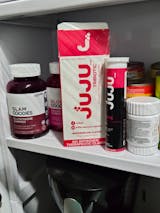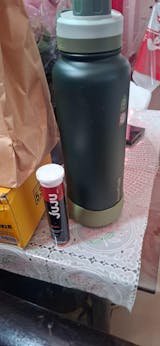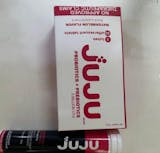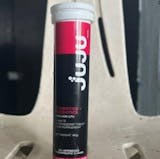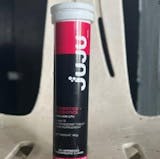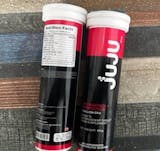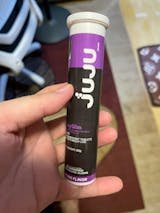Many women and men worry about how their skin looks, especially in the bikini area, and they may want to whiten it for different reasons. Changes in hormones, friction, shaving or waxing, and skin irritation can all cause darkening in the bikini area. Even though there are many ways to bikini area whitening, it’s important to focus on safe and effective ones so you don’t hurt your skin.
In this blog post, we will discuss the different methods about bikini area whitening , some tips for you and how to choose the right product to help you! Keep on reading!
IN THIS ARTICLE
11. Conclusion
Why Are Most Bikini Areas Dark And Sensitive?
When looking at sensitive skin, most people look at the face. But it’s becoming more and more clear that different people have different ideas about how sensitive their skin is in different places. Even if you don’t think you have sensitive skin, you do. For example, the skin in your pubic area is sensitive. Since the skin on your labia majora is different from the skin on your arm or leg, you need to take care of it differently.
As was already said, the skin on your pubic area is not the same as the skin on the rest of your body. In fact, it is thinner, more flexible, and less tight. It also has more nerve endings near the surface, which makes it more sensitive to friction, shaving, or irritation. Because of these things, people often have darker skin.
Melanin's Role in Skin Color
Melanin gives your skin, eyes, and hair their colors. The substance also absorbs damaging UV (ultraviolet) rays and helps protect your skin cells from sun damage.
Even though melanin is usually talked about as a single pigment, there are actually two types of melanin that give hair, skin, and eyes their color:
- Eumelanin: This pigment is connected with dark colors, like brown and black.
- Pheomelanin: This pigment is linked to different colors, like red and yellow.
Large cells called melanocytes start making melanin. Melanocytes are found all over the body. Organelles called melanosomes are made by cells called melanocytes. Both eumelanin and pheomelanin are made in these melanosomes. Then, eumelanin and pheomelanin are sent to other cells, such as keratinocytes or also known as skin cells.
REASONS OF SKIN DISCOLORATION
Friction
You might not think of friction from outside sources as a reason for skin discoloration, but it can contribute to hyperpigmentation. When you wear clothes that are too tight, don’t fit right, or are otherwise restrictive, the natural skin in your intimate areas and in the inner thigh can darken or change color.
Even everyday things like working out, having sex, or just rubbing your skin can cause discoloration. When the skin rubs against tight or constricting clothes, it can make too much keratin, which also has melanin in it. When these things are made in too high of a quantity, the skin can get darker or change color.
Hormonal imbalance
Hair Removal
Many people get hair removed to keep their bikini lines looking bright and fresh, however some hair removal methods can cause pubic area skin to darken in some people. If you get your hair removed often and notice that your skin is getting darker, this could be something to think about.
Inflammation
Redness and irritation call for an anti-inflammatory cream that is gentle enough for sensitive skin. This could be a result of friction between your legs when you walk or when wearing tight clothing. To keep damage from getting worse, it’s best to use oil or creams that help. Any one of them should help you in a day or two.
Hyperpigmentation
Hyperpigmentation can happen if you pick at ingrown hairs or if a wax technician puts on strips that are too hot. If you scratch your bikini line when it bothers you, you may also get hyperpigmentation, which will make your skin darker.
Different Ways To Whiten The Bikini Area
1. Topical treatments
Whitening Creams -You might go to the store or pharmacy first to find a skin lightener cream or serum to treat your dark spot. But you need to know what to look for so that you don’t make your pigmentation worse. When looking for over-the-counter bikini whitening cream or serums, it’s best to find ones with as many natural ingredients as possible. Soy, niacinamide, ellagic acid, and lignin peroxidase are all safe ingredients that don’t cause allergies and can be used on sensitive areas like the bikini line. You also add whitening lotion in your skin routine to help you achieve that smooth skin and lighter skin.
Home Remedies – Natural remedies would be our second choice. Most of these ways are well-known to lighten almost any part of the body, not just the bikini line. You can use baking soda, aloe vera, olive oil, turmeric, and potato with lemon. Be careful when you use these things. If you use it too much, it can also irritate your skin.
2. Oral supplements
Glutathione effervescent tablets – There are hundreds of brands of glutathione supplements on the market for skin whitening. Studies still come to different conclusions about how well glutathione works when it is taken by mouth. So, if you want to take supplements, make sure you know what to expect, do your research on different brands, and add a well-balanced diet to your routine. With Juju Glutathione effervescent tablets, your skin will look brighter and more radiant. Try them out now!
Collagen and vitamin C effervescent tablets – You can use Juju collagen and vitamin C effervescent tablets in addition to glutathione tablets. If you drink collagen, vitamin C, and glutathione together, it can help whiten your skin because they will make each other more effective. Collagen will get a boost from vitamin C.
3. Medical procedures
Glutathione injections – Aside from using skin whitening cream, The glutathione is put directly into your bloodstream, which speeds up how quickly the chemical moves through your body. In addition to making your skin lighter, glutathione IV is said to boost your immune system and fight free radicals. The best results from this method come after about 15 sessions.
Laser treatments – The laser destroys the melanin deposits in your skin, which makes your skin less dark. The lasers can target the problem area with great accuracy without hurting the skin around it. A contact handpiece cools the surface of the skin, making it feel less hot.
Chemical peels – Chemical peels can also be done with creams or by going to a professional. But skin bleaching or bleaching treatment might not be such a good idea to brighten skin, especially when it comes in contact with places like the inner thighs and pubic area that are sensitive and easy to irritate. When you use chemical peels too much, you can cause more damage to your skin and make it more likely to get damaged by the sun. Use them rarely and in small amounts to keep your skin healthy.
Benefits of Glutathione and Collagen for Bikini Area Whitening
When it comes to skin health and whitening, glutathione and collagen are two of the most popular ingredients. It is known that these ingredients are good for the skin, including the bikini line. Some of the benefits of using glutathione and collagen to whiten the bikini area are as follows:
- Antioxidant properties of glutathione: Glutathione is a strong antioxidant that can help protect the skin from damage caused by free radicals and oxidative stress. This can make your skin look brighter and healthier. Glutathione can also help stop the skin from making melanin, which can lighten dark spots and make the bikini area less dark.
- Collagen’s role in skin elasticity and health: Collagen is a protein that is very important to the health and elasticity of the skin. It helps to improve the texture of the skin, lessen the look of fine lines, acts as anti aging, lessen wrinkles and stretch marks, and keep the skin healthy overall. By using collagen to whiten the skin in the bikini area, you can improve the skin’s overall look and feel.
- Enhanced results when used together: When used together, glutathione and collagen can help the skin in a way that neither one could do on its own. Glutathione’s antioxidant properties can help protect collagen in the skin from damage. Collagen, on the other hand, can help make the skin more elastic and healthy. This can make the skin in the bikini area look brighter, smoother, and younger.
Safety and Side Effects of Bikini Area Whitening Treatments
Before using or trying a whitening treatment on a dark bikini area, it’s important to be very careful and, if possible, talk to a dermatologist. It’s important to know that some of these treatments may have side effects or safety risks.
When you want to whiten your bikini area, it’s important to talk to a dermatologist or other qualified health care provider to make sure you stay safe and reduce the risk of side effects. They can give you advice on safe and effective treatments based on the type of skin you have and your concerns. They can also help you avoid risks and problems. It’s also important to carefully read and follow the directions on any product you use. You should also avoid using these treatments too much or in the wrong way.
Tips for Maintaining a Lighter Bikini Area
It can be hard to keep your bikini area lighter, especially if your skin is naturally darker or you tend to get dark spots in this area. There are, however, a number of tips and tricks that can help you get and keep lighter, more even skin. Here are some ideas to think about:
- Sun protection and prevention: Sunlight can make the skin in the bikini area get darker and change colour. To keep this from happening, it’s important to use a good sunscreen with at least SPF 30 when you’re outside. You might also want to wear protective clothing like a cover-up or rash guard to protect yourself from the sun even more.
- Consistency in product use: If you’re using a product to lighten the bikini area, such as Juju Collagen Drink or Juju Glutathione effervescent tablet, it’s important to use it consistently and as directed. This may involve incorporating the product into your daily skincare routine and using it regularly for several weeks or months to see results.
- The importance of a healthy lifestyle: Keeping a healthy lifestyle is another thing that can help you get and keep a lighter bikini area. This means getting enough rest and exercise and eating a healthy, well-balanced diet. A healthy lifestyle can help keep your skin healthy overall and may make treatments to whiten the bikini area work better.
- Exfoliating body: The use of scrubs will also help in making the skin lighter. Using body wash with exfoliators scrubs will help to remove dead skin. When dead skin is gone, the skin will look whiter and softer. This can aid in intimate skin lightening but should be use with caution.
- Avoiding irritants and abrasive materials: Lastly, it’s important to avoid using harsh or abrasive materials in the bikini area, as this can cause irritation, inflammation, and discoloration. This could mean not wearing clothes that are too tight, using gentle cleansers and exfoliators, and avoiding products with strong chemicals or scents.
By adding these tips to your daily routine, you can help your skin in the bikini area look brighter and more even.
Risky Methods to Avoid
There are also a lot of dangerous and possibly harmful ways to whiten your bikini line that you should avoid. These things are:
- Use of harsh chemicals: Some people may try to whiten their bikini area with harsh chemicals like hydroquinone or mercury. These chemicals can irritate your skin, give you rashes, and even hurt your skin in the long run.
- Unproven home remedies: People may try to whiten their bikini area at home with things like baking soda or bleach that haven’t been proven to work. Not only do these methods not work, but they can also do a lot of damage to your skin.
How to Choose the Right Bikini Area Whitening Method for You
Choosing the right way to whiten your bikini area can be hard because there are so many products and treatments out there. Here are some things to think about when choosing the right method for you:
- Assess your skin type and sensitivity: It’s important to pick a method that works with your skin type and level of sensitivity. If you have sensitive skin, you might want to stay away from harsh chemicals or rough treatments that could irritate or inflame your skin. If you have darker skin, you may need a stronger or more intensive treatment to see results.
- Balance effectiveness with affordability: It’s important to pick a method that works, but you should also think about your budget and how much you’re willing to spend. Some treatments, like laser or IPL therapy, can be very expensive. Other treatments, like creams and serums you can use at home, may be less expensive.
- Customize a whitening routine to fit your lifestyle: To get the best results, you should choose a method that works with your life and schedule. If you have a lot going on, you might want to choose a treatment that doesn’t require much time off or that you can do at home. If you have more time and money, you might want to think about more intensive treatments or going to a professional.
- Consider the long-term effects: When choosing a way to whiten your bikini area, it’s important to think about how it will affect your skin in the long run. Some treatments may work better in the short term, but they could hurt or change the color of the skin in the long run. Others might be easier on your body and safer for long-term use, but they might take longer to work.
Frequently Asked Questions
What is bikini area whitening, and how does it work?
Bikini area whitening is when products or treatments are used to make the skin lighter in the pubic area. Creams, serums, and professional treatments like laser or chemical peels are some of the ways to do this. The products or treatments work by stopping the production of melanin, which is what gives skin its color, or by removing the top layer of skin to reveal lighter skin underneath.
Can bikini area whitening treatments be used on other parts of the body?
Yes, you can use some of the same products and treatments that are used to whiten the bikini area on other parts of the body. But it’s important to remember that the skin in the bikini area is usually more sensitive than skin in other parts of the body, so it’s important to check if the product is safe to use on other parts of the body before applying.
How often should I apply bikini area whitening products for optimal results?
Products that whiten the bikini area can be used more or less often depending on the product or treatment being used. Some products have to be used every day, while others only have to be used once or twice a week. To get the best results, it’s important to follow the directions that come with the product.
What ingredients should I avoid when choosing a bikini area whitening product?
When picking a product to whiten the bikini area, it’s important to stay away from harsh ingredients that can irritate or hurt the skin. Hydroquinone, mercury, and steroids are all things you should stay away from. It’s also important to look at the label to see if you have any allergies or sensitivities to any of the ingredients.
Can I use sunblock or sunscreen on my bikini area to prevent further darkening?
Yes, it is important to use sunblock or sunscreen on your bikini area to keep the skin from getting even darker. The skin around the bikini line is especially sensitive to UV rays, which can damage and change the color of the skin. Before going out in the sun, you should put on sunblock or sunscreen with at least SPF 30 and reapply it every two hours.
Conclusion
Whitening the bikini area can be a sensitive subject, but it’s important to focus on safe and effective ways to get the results you want. By using the tips and advice in this article, you can take care of your skin and love your body no matter how it looks. Always put your skin’s health and safety first and talk to a dermatologist if you’re not sure which method is best for you.


